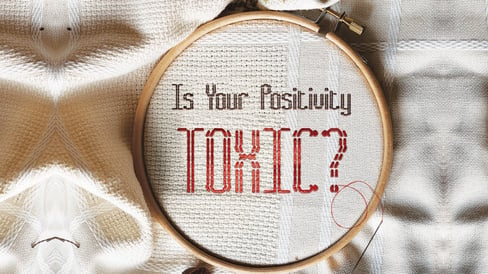Dismissive Positivity
Join Our Movement
What started as an idea has become a national movement. With your support, we can influence policy and inspire lasting change.
Become an Advocate
There are a hundred of these upbeat phrases meant to gloss over the anguish that others are experiencing. Here are a few of my favorites:
- “Everything happens for a reason.” The gold standard, meaning, a) you must have done something, or been something, awful to deserve this -- you are responsible, and b) maybe you’ll “learn something” and be a better person because of it.
- “Don’t worry, it’ll all work out, it’ll get better, just think positive.” In other words, shut off those real feelings and just fake it. I know I’ll feel better if you do.
- “God only gives us what we can handle.” The Biblical gold standard: if you can’t handle paralysis or cancer or the loss of a child, then you’ve let God down.
- “Just think, so many people have it worse off than you do.” A perfect way to dismiss pain or anger as self-indulgent and to induce guilt.
- “Happiness is a choice.” Don’t feel sad or hurt -- bad choice!
- “You’ll get over it!” Meaning, if you don’t soon, you are messed up.
Dismissive positivity is a cognitive bias, an unconscious mental strategy to avoid often painful, unresolved, and problematic emotions at all costs. Rather than be so quick to spin things into some universal declaration that ends the conversation before it even starts, try listening. Try to experience what the other person is experiencing before attempting to mend it with a trite, quick-fix slogan.
If you have experienced the onset of paralysis or any other life-altering crisis, you will never tell someone else in the same situation “You’ll get over it” or “Everything happens for a reason.” You will let them have their say, acknowledge it, then perhaps compare your experience to theirs, simply as a means of making an emotional connection. Whether you have been there or not -- and most of us haven’t -- forget the quick, easy judgement; the dismissive blow-off. You are not them -- what do you know about what they’re going through?
